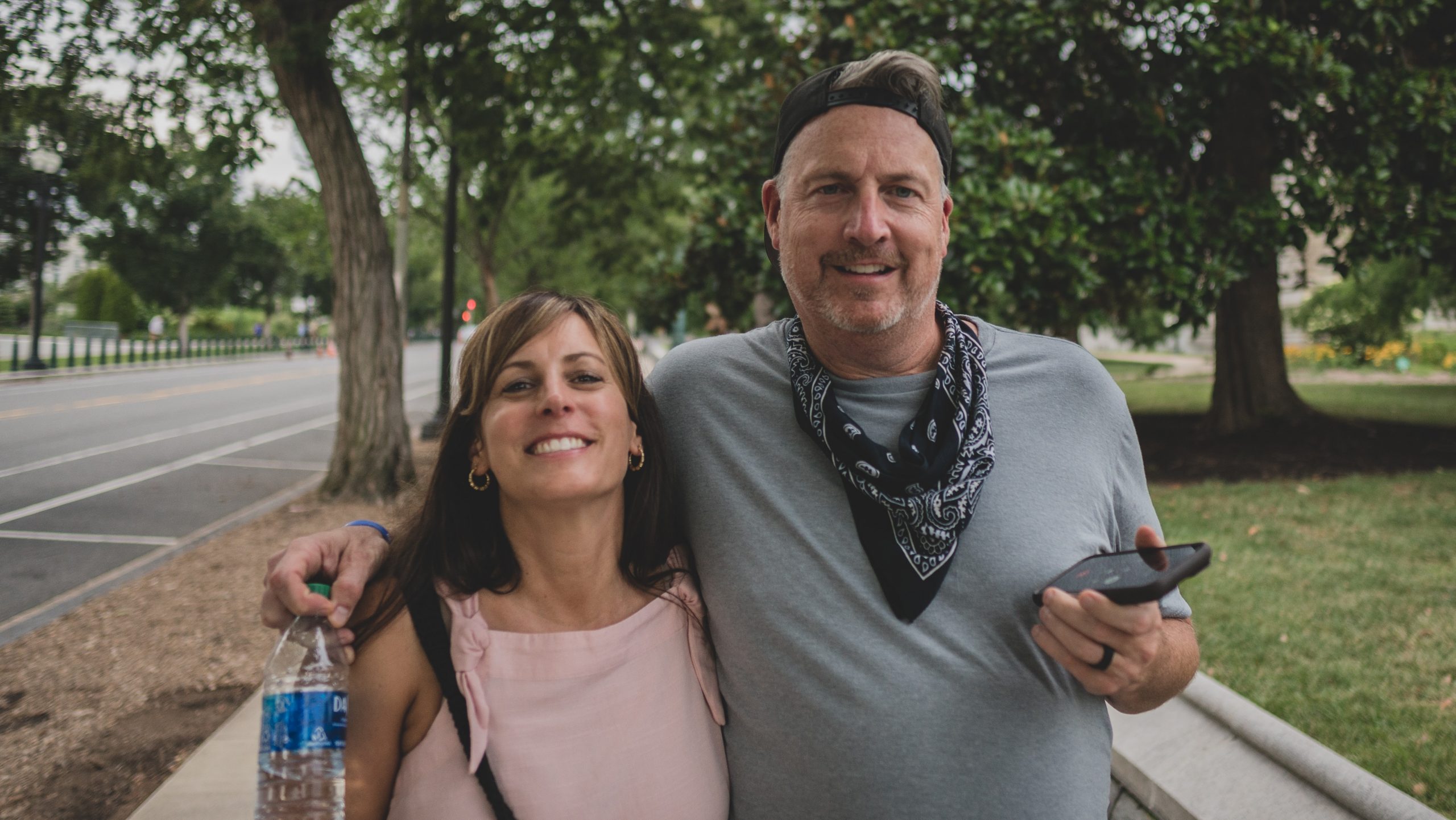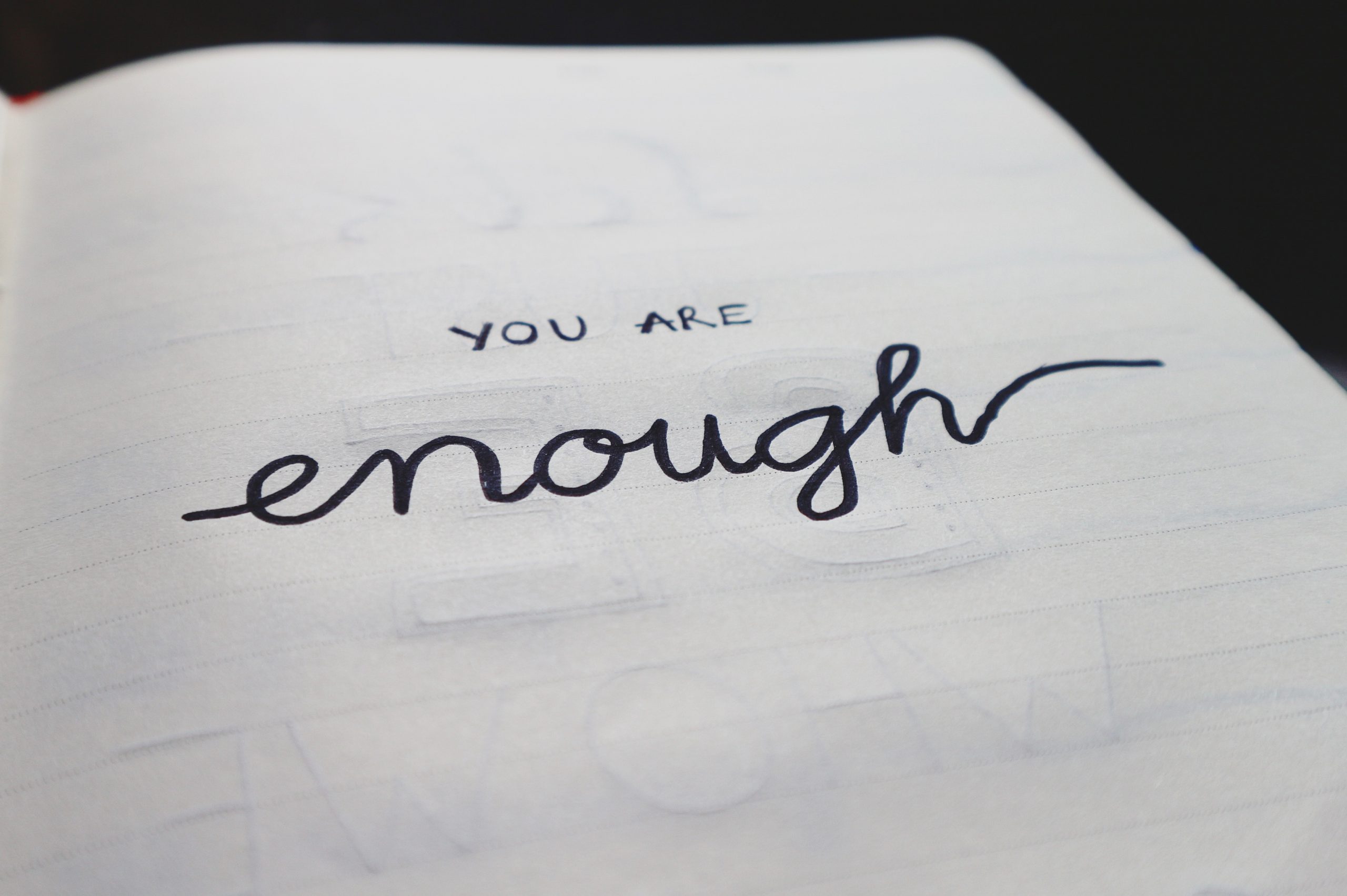Why A Midlife Crisis Is A Midlife Opportunity
07.07.2021
Audio version
For your convenience here is the audio version of this article. Press Play to listen.

Looking in from the outside, a midlife crisis might seem like a shiny, self-indulgent phase of life, complete with a shiny new car and gloriously unnecessary purchases. People even find humor in it.
However, it can be a painful, rudderless, and confusing part of your life that plays havoc with your self-esteem.
How to recognize your midlife crisis
There’s no rash, ache, or pain that screams “YOU’RE HERE NOW. THE FORK IN THE ROAD.” But there are sure signs of a midlife crisis that will let you know that your brain is asking for change.
- Rash, impulsive decisions. You feel like you might want to learn an instrument, so you just dropped $5,000 on a vintage Les Paul guitar and all the accompanying gear. It’s not even definitely something you plan to commit to yet.
- Moments of mania… You spontaneously head out after work for a few drinks and end up in Vegas doing things you couldn’t possibly explain to your partner.
- …followed by introspection and regret. These manic phases haven’t helped your back pain go away, didn’t help your marriage one bit (actually, they threw a colossal wrench in the works), and just made you feel sh*tty when they were done. The questions are still sitting there, glaring at you, unanswered.
- Career dissatisfaction. You’ve progressed as far as you can. Your boss is 20 years younger than you. Your job title hasn’t changed in a decade. Your company is getting swanky, there’s minimal new branding, they’re bringing in yoga instructors at lunchtime and more. In short, you’re starting to feel like a spare part, and that letting go of your job would mean never finding another (or finding another that pays less).
- Dramatic switch-ups of routine. Perhaps you’re spending every available second at the office, or you’ve been waking up far earlier or later than you would while busying yourself with distracting tasks.
- Anxious and depressing thoughts. “Does my family only love me or are they stuck with me?” “Am I stuck with them?” “I haven’t been intimate with my wife in months.” “Good God, that’s definitely a spare tire around my waist. Where did my six pack go?” “I bet my husband looks at his secretary constantly.” “I bet my wife looks at our mailman constantly.” “If I died, which isn’t far off, he’d find someone else in a heartbeat.” Your mind may well be freewheeling anxiety-riddled and isolating thoughts.
Does this sound like the kind of midlife you’ve worked for all these years? Hell no.
You’re reassessing your whole connection to the world. Your body. Your relationship. Everything that felt like a bedrock even 5 years ago (including your ability to make the bed rock) feels shaky and uncertain. The goals and values upon which you built a family no longer seem like a sure thing – or you already attained everything you wanted, and feel like your purpose has been spent.
But what if it doesn’t have to be? What if the questions you’re asking yourself are an opportunity to pivot into a midlife opportunity? “What’s next?” doesn’t have to be laced with fear.
You don’t have to frame midlife as negative, because it’s not – you’re actually at the apex of your powers. When else have you been at a peak of experience, expertise, and energy? You’ve got to seize this unique opportunity before you reach old age and run out of fuel.
It doesn’t get better than this.
The land of opportunity: You’re asking the questions but missing the trick.
You might feel like this wave of questions and impulsive decision-making mean there’s something wrong with you.
For a start, you’re not alone, and everyone who is lucky enough to reach midlife and be comfortable enough to experience boredom around their stable circumstances should give themselves a pat on the back.
Secondly, it’s perfectly healthy to question what you have, why you have it, and your relationship to it. Younger people ask those very same questions but ride this wave of energy unburdened by the expectations of others. They can make mistakes without too much fear of lasting repercussions (within reasonable limits). It’s expected that they’ll stay way too long at the bar and leave with a stranger.
But with a stable family, a job that may not be there tomorrow, and a mortgage looming over your shoulder, you’re possibly decades into a life that will always be the product of the decisions you made along the way. People expect more of you, you expect more of yourself, and you begin to take your stability for granted.
You may feel like you regret not trying for a poker playboy lifestyle or not becoming a rockstar. But these aren’t really regrets – they’re reminders of your potential. If you’ve got no regrets, you didn’t make any decisions. Who wants that kind of life?
What you have to do is capture the curiosity and motivation behind the questions you’re asking and put them to better use rather than subject yourself to self-punishment or potentially destructive activity.
Your body regenerates its cells every 7–10 years. Not a single cell from that version of you that wiped their child’s ass and taught them to walk remains, now they’re at college. Change is, in a very real sense, constant. But that doesn’t mean it’s uncontrollable – and what some term a “midlife crisis” could be a very real opportunity to take ownership of who you are today.
Cause and effect: What brings on a midlife crisis, and how can you respond?
Low self-esteem is a constant presence throughout a midlife crisis. Confidence and happiness, however, are matters of perspective. You can pine after what you never had throughout the years, or you can work toward what you could have tomorrow.
- Feeling you haven’t achieved enough. Yes, but you know who else feels they haven’t achieved enough? Literally f*cking everyone, including the most outwardly successful person you know. We all have goals we never hit and ideals we never embodied. But you built a family and a home from the ground up – maybe a business or career, too. Hush that negative inner voice.
- Feeling like you’re running out of time. That is literally the whole point of time. It’s precious. So are you going to spend it antagonizing your partner with ridiculous, unexplained purchases, or are you going to spend those valuable moments building your legacy?
- Loss. This is the hardest part of midlife to wrap your head around. You will lose people you love, either through mortality, drifting relationships, or both. A midlife crisis can come from the jolt of loss. These manic distractions can distract you from the grief in your life, but you can only move past grief by confronting and accepting it. Everyone grieves differently, but you have to face it sooner or later – or risk losing more in the process.
- Sudden or extreme change. It’s inevitable. Perhaps you’ve been laid off from work or experienced divorce. No-one’s saying you shouldn’t take time to heal. But the former is an opportunity to modernize your skillset, and the latter is an opportunity to see a personal trainer, get in shape, and talk to attractive strangers again. Change is hard, but it’s a gateway to better things.
These feelings are natural. You can choose to dwell on them or move past them to a brighter future.

If you’re bored with your life, what’s wrong with treating yourself?
The danger of a midlife crisis comes when you remortgage the house to buy a 2-seater sports car that doesn’t have room for the whole family.
But whether you’ve got the sudden urge to buy an indoor gym and work out like a maniac, pick up the instrument you always wanted, or treat yourself to something fancy that seems out of character, who is anyone else to judge? Change is natural and healthy, you’ve worked hard for the life you have, whatever its flaws, and rewards can spur you on to greater things.
By this point in your life, you’ve lived through enough (and learned enough) to trust your gut. Instinct is so often the father of truth, so what seems like an impulse decision might well point to a deeper desire you’ve had for a while.

How to make friends in midlife
A social support network is going to be the glue that holds your life together after loss, change, or prolonged self-doubt. Depression and anxiety won’t be your only bedfellows during a midlife crisis. You will also, at times, feel exceptionally lonely. You need to start work on that ASAP.
Here’s how to make more friends – and why you should.
- Realise you need friends. Many folks in our generation like to show how strong they are in isolation. “I got through this – and I did it alone.” You have to make yourself open to new connections. The right buddy can give you a new lease of life during a dark time.
- Get a friend to set you up with others. Maybe you’ve moved to a new city after a divorce or a pal has hooked you up with a career lifeline at a new company. Ask whatever contacts you have to get you in a room with like-minded folks. Not every meetup will be a slam dunk (not unlike dating), but you’ll eventually rub shoulders with someone who makes you laugh and has your back.
- Be yourself. This seems like a dumb cliche. However, for friendships to be authentic, they need to see you for who you are. This isn’t a job interview. If they can’t handle all of you, they can stay in your life as an acquaintance. It’s no skin off your back.
- Take the time, and make it count. Research suggests it takes 200 hours to make a real friend. Take the conversation deeper once you’re starting to get familiar with a potential buddy. Let them in on your values and history, and gauge how willing they are to do the same. Relationships are reciprocal.
- Smile more. Whatever you’ve been through, showing positive emotions is a better way to foster new relationships than negative ones. And research supports this.
- Actually follow up. You know how rare it is that the “oh, let’s grab a coffee next week” invitation actually materializes? If you back your invitations, you’ll make a super appealing prospect for friendship.
- Don’t worry about loss or pain. Yes, that’s hard to fathom during a midlife crisis. But pushing away potential connections, for fear of losing them at some point (and you will, unless you meet the one immortal being in your city) deprives you of so much possibility between now and then.
- Say “yes” more. Go to the meetup. Turn up to the board games night. Use those new hobbies you’re picking up to enter more social arenas. Heck, check the notice board at your local supermarket and see what local events are happening. You just need to put yourself in places with other people and be open to connections.
Rome wasn’t built in a day, and forming friendships take even longer – get crackin’!
Steps for adding purpose to your midlife crisis:
Mindset comes from practice, and practice comes with mindset. You can take practical steps tomorrow to start kicking your midlife crisis in the pants:
- Avoid crutches. Don’t develop harmful crutches like alcohol or drugs to mask the introspection. Embrace those questions. Use them to direct yourself to what you really want, then go after it like there’s no tomorrow.
- Start to master something. It could be a new hobby, instrument, or sport. Learn a language or become a culinary genius. In his book “Outliers”, Malcolm Gladwell famously put forward that it takes 10,000 hours to gain true mastery. Sounds like it’s about time to start investing those hours into something meaningful to you.
- Make that next purchase an investment, rather than an indulgence. There’s a fine line, and only you know where that sits. Enrich your soul. Travel to places. Spoil yourself. For example, instead of splurging on a sports car you don’t use for fear of scratching it, buy a second-hand one that needs some TLC, do the work, drive it, enjoy it, then sell it on for a higher price.
- Communicate openly. The stereotype of the naysaying partner needn’t apply if you simply explain what you stand to gain from the situation. A happy partner makes for a happy life, after all.
- Make exercise part of it. Your body’s changing? Good. That’s a sign it can change – and that you can change it for the better.
- Turn your attention to your relationship. You are not the same person your partner met 25 years ago. You might need a refresher course on each other’s minds and bodies. Building a life dilutes the passion and diverts the relationship into something else. But you’re empty nesters now – so fill that nest with more love. Learn new hobbies together. Start a board game tournament against each other that never ends. Go on long sunset cycles. This is actually one of the most romantic times in your life, and given everything that can happen in terms of mortality, it’s one of the most important periods for emotional support. Learn to have your partner’s back again.
- Include some treats to keep the family sweet. Doing the right thing for yourself doesn’t mean leaving the folks behind. Everyone should come out of your midlife crisis a winner. Get your partner and kids something they’ve always wanted when you buy those shiny golf clubs or that fancy handbag you’ve been after for years.
- See a therapist or life coach. There’s no shame in seeking professional help. Sometimes, it takes an impartial pair of eyes to decode your next steps. Our generation might not be as open to therapy as later ones, but talking can really open doors for you.
- Upskill professionally. Those insecurities you feel about your job? You can do something about it. There are thousands of online courses you can explore to find new paths for your professional skills. If those don’t tickle your fancy, see a career coach to work out what you really want to be doing. You might need a foundation for moving forward, taking a sideways step into another industry, or building your own operation from scratch. These changes in your life can help you change with the times. It’s so easy to become irrelevant as a 21st century professional, so use this momentum to stay afloat.
- Embrace death. It’s coming, like it or not, and even though life events (such as bereavements) may be bringing it closer and closer to home, it’s a reminder to cherish each day.
The roundup.
This is not a midlife crisis. It’s a midlife movement in which we are all proteges of our potential.
There should be no stigma around it whatsoever. People feel self-doubt at every stage of life for every possible reason. Midlife is simply an opportunity to engage the questions we ask for the purposes of self-betterment.
And unlike, a person fresh out of college or someone entering marriage for the first time, we’re coming from a position of stability. Yes, there’s more to lose if we f*ck up – but we’ve got more of a platform from which we can build. That’s incredibly powerful.
Carl Jung called midlife the afternoon of human life, and it’s such a beautiful analogy. The sun is at its highest, you’re looking forward to a great meal, and anticipating a thrill-packed evening and night.
So have yourself a great afternoon, analogically speaking.
Article resources
Campos, B., et al. (2015). Attuned to the positive? Awareness and responsiveness to others’ positive emotion experience and display. https://link.springer.com/article/10.1007%2Fs11031-015-9494-x
Fielding, S., et al. (2021). https://greatist.com/grow/midlife-crisis
Hall, A. (2018). How many hours does it take to make a friend? https://journals.sagepub.com/doi/10.1177/0265407518761225
Lachman, M. E., et al. (2015). Mind the gap in the middle: A call to study midlife. https://www.ncbi.nlm.nih.gov/pmc/articles/PMC4734389/
Lebowitz, S. (2015). How to make new friends (and keep the old) as a young adult. https://greatist.com/happiness/how-to-make-keep-friends#make-new-friends
Midlife. (2019). https://www.psychologytoday.com/us/conditions/midlife
Radford, B. (2011). Does the human body really regenerate itself every 7 years? https://www.livescience.com/33179-does-human-body-replace-cells-seven-years.html



























